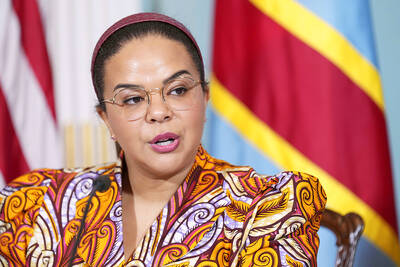A man who kidnapped a supermarket worker and killed her as she prayed for her life was sentenced to die, the first person to get the death penalty in Vermont in almost a half-century.
Donald Fell, 26, was sentenced on Friday by a federal judge who once ruled the death penalty unconstitutional.
Speaking in court for the first time after years of court appearances, Fell apologized twice in a brief statement for stomping 53-year-old Terry King to death in November 2000 on a roadside in Dover, New York.
"The words are inadequate," Fell said, his voice barely audible in court. "I truly am sorry for my crime. What I did was horrible and wrong. I know the wounds will never heal. If it comes down to it in the end that I do die, I understand that it's no less than what I deserve. I truly am sorry."
US District Judge William Sessions III imposed the sentence, which was issued nearly a year ago by the same jury that found Fell guilty.
Fell was the first person sentenced to death in Vermont since 1957, and no one has been executed in the state since 1954. The state abandoned the death penalty in the mid-1960s, although the law remained on the books for another 20 years.
Fell's lawyer, Alexander Bunin, said he did not argue against the sentence because federal law required that it be imposed. But he filed an immediate appeal, which he said would lead to the first direct appeal in 40 years of the death penalty in the judicial district covering the states of Vermont, New York and Connecticut.
King was 53 when she arrived at work and was abducted by Fell and his co-defendant, Robert Lee. The two had just killed Fell's mother and her friend after a night of heavy drinking.
In a confession played at his trial, Fell said he killed King because she could identify him and Lee.
The two were arrested three days later. Lee died in prison by accidental hanging in 2001.

STEPPING UP: Diminished US polar science presence mean opportunities for the UK and other countries, although China or Russia might also fill that gap, a researcher said The UK’s flagship polar research vessel is to head to Antarctica next week to help advance dozens of climate change-linked science projects, as Western nations spearhead studies there while the US withdraws. The RRS Sir David Attenborough, a state-of-the-art ship named after the renowned British naturalist, would aid research on everything from “hunting underwater tsunamis” to tracking glacier melt and whale populations. Operated by the British Antarctic Survey (BAS), the country’s polar research institute, the 15,000-tonne icebreaker — boasting a helipad, and various laboratories and gadgetry — is pivotal to the UK’s efforts to assess climate change’s impact there. “The saying goes

Floods on Sunday trapped people in vehicles and homes in Spain as torrential rain drenched the northeastern Catalonia region, a day after downpours unleashed travel chaos on the Mediterranean island of Ibiza. Local media shared videos of roaring torrents of brown water tearing through streets and submerging vehicles. National weather agency AEMET decreed the highest red alert in the province of Tarragona, warning of 180mm of rain in 12 hours in the Ebro River delta. Catalan fire service spokesman Oriol Corbella told reporters people had been caught by surprise, with people trapped “inside vehicles, in buildings, on ground floors.” Santa Barbara Mayor Josep Lluis

Police in China detained dozens of pastors of one of its largest underground churches over the weekend, a church spokesperson and relatives said, in the biggest crackdown on Christians since 2018. The detentions, which come amid renewed China-US tensions after Beijing dramatically expanded rare earth export controls last week, drew condemnation from US Secretary of State Marco Rubio, who on Sunday called for the immediate release of the pastors. Pastor Jin Mingri (金明日), founder of Zion Church, an unofficial “house church” not sanctioned by the Chinese government, was detained at his home in the southern city of Beihai on Friday evening, said

SANCTIONS: Congolese Minister of Foreign Affairs Therese Kayikwamba Wagner called on the EU to tighten sanctions against Rwanda during an event in Brussels The Democratic Republic of the Congo (DR Congo) has accused the EU of “an obvious double standard” for maintaining a minerals deal with Rwanda to supply Europe’s high-tech industries when it deployed a far-wider sanctions regime in response to the war in Ukraine. Congolese Minister of Foreign Affairs Therese Kayikwamba Wagner urged the EU to levy much stronger sanctions against Rwanda, which has fueled the conflict in the eastern DR Congo, describing the bloc’s response to breaches of the DR Congo’s territory as “very timid.” Referencing the EU’s response to Russia’s invasion of Ukraine, she said: “It is an obvious double standard